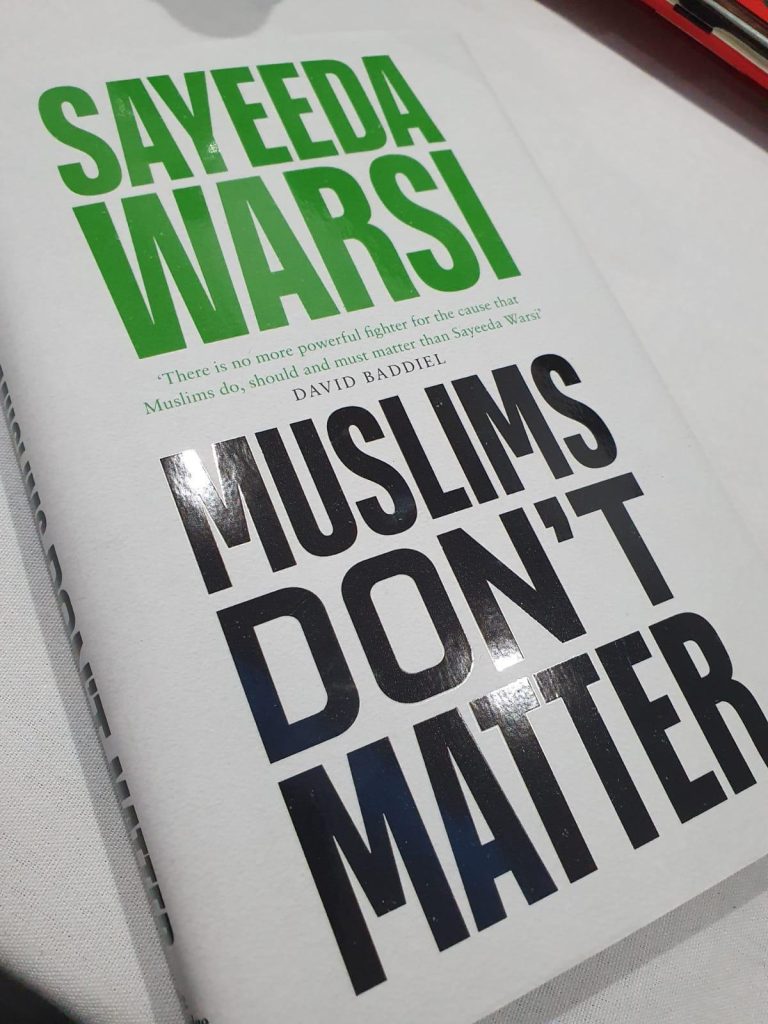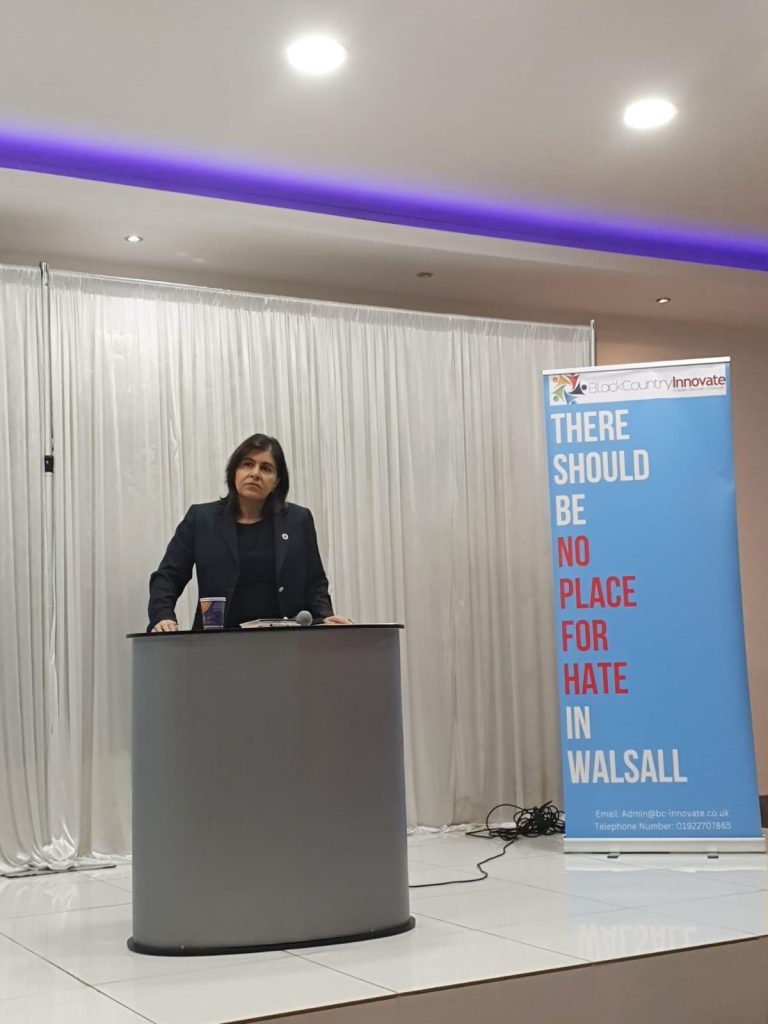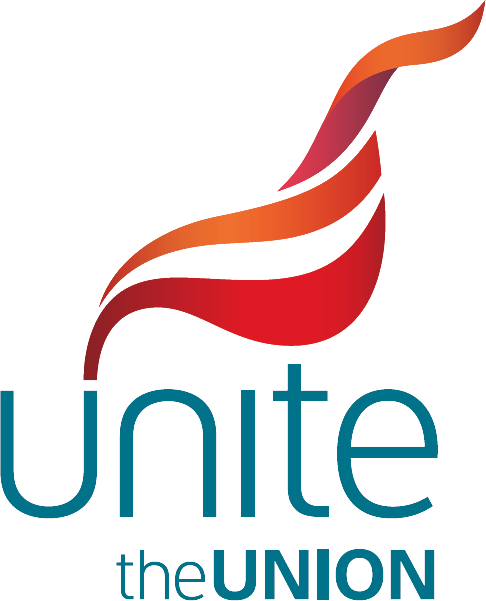Keynote lecture around Islamophobia, faith, race, and Identity
November 2024: Sayeeda Warsi was invited as a guest speaker by Black Country Innovate for their first annual community lecture. It was in Walsall at this lecture, where the Walsall mayor, local councillors, community groups and local activists were in attendance where Warsi promoted her new book “Muslims don’t matter”. With the growing rise of far-right populism, mainstreamed xenophobia and Islamophobia, it felt important to attend the event and see what Baroness Warsi had to say. I also picked up her book and took a photo with her after the event!
She starts her book by saying “I am done with apologising”. This was a key take-away from the conversation and the wish she had for other Muslims to also share: that as Muslims, we don’t have to constantly apologise, constantly be on the defense, and go along with the stereotyped identity narratives of Muslims that successive governments have tried to pigeon-hole Muslims into.
This stereotype of Muslims and their beliefs has been compounded by policies such as Prevent, said Warsi. This marks the securitisation of Muslim identities, whilst they are still in school. A pernicious policy, that marginalises, sidelines and criminalises Muslims, even at school age. In my view, Prevent has always been problematic and it is notable that 70% of referrals made to Prevent may have mental health issues or experience other vulnerabilities.
Warsi also spoke passionately about representation – real representation of Muslims – and the consequences of this not taking place. This is something that is an issue within communities and organisations whereby ‘people of colour’ and those who are seen as inclusive hold positions of authority and are wheeled out as ‘model Muslims’
‘model minorities’ or ‘progressive’; Organisations who have people of colour in senior positions are subsequently evidenced as ‘progressive diverse and inclusive organisations.’ Many councillors from Walsall Council and even the mayor of Walsall were in attendance at the event, as well as notable members of local community organisations. An audience member commented that the same people who were supporting this event had contributed to a culture of silencing and hypocrisy over Palestine, contributing to a fuelling of systemic Islamophobia and discrimination.
I am reminded of the words of Dr Benjamin, Sociologist and African Studies Professor, who says “Black faces in high places are not going to save us.” If there is no departure or challenge to the status quo, what is the point of minoritised individuals holding positions of power? There needs to be a real shift: a system change in battling White supremacy and prejudiced views by those (White and Minoritised) who hold positions of power. As Warsi said, “wherever bigotry is, it needs to be called out; be unapologetic about yourself and your identity, your views and beliefs: do away with the defensiveness and be proud of who you are.”
Warsi spoke to the genocide in Palestine too. She reminded the audience to remind their elected politicians of the British Policy about Palestine and the illegal settlements. The illegal settlements, which is making the hope of the establishment of a Palestinian state impossible. The settlements are illegal under international law. Warsi felt strongly that elected officials should be challenged to be vocal and support their own foreign policy about Palestine – something that they are currently failing to do. She also called for Muslims to be engaged with the wider community and with British politics, even though the politics of disengagement felt understandable, given the marginalisation of Muslims being made mainstream. Warsi – when challenged – failed to acknowledge or even address the criticism of the history of empire, colonialism and imperialism which underpin the racism, Islamophobia and the ongoing bombardment and ethnic cleansing in Palestine.
For me, the politics of disengagement is totally understandable, as the ongoing genocide in Palestinians continues, with support of successive British governments, despite the marches, national demonstrations, petitions and even direct action calling for its end.
Warsi, however, was more optimistic. “Politics is the art of the possible” she said, echoing Otto Van Bismarck. Her optimism felt strange as British politics has lurched to the right, her party – the conservative party – of which she is still a member has gradually become more and more Islamophobic and derogatory about minoritised communities.
She ended by reiterating that the Muslim community (which is by no means monolithic!) was vibrant and diverse. Despite the far-right and their allies attempting “to set the country alight” she encouraged Muslims to take agency in their own engagement with politicians and not allow themselves to be marginalised and isolated, even though that is what successive governments have done. “Be open, have open conversations and play your part” she emphasised. I think this is a message for us all. We all need to reflect openly and honestly about how we can play our part to contribute to a fairer, more equal society, in which people are treated with dignity, respect and fairness, whatever their skin colour or faith background.




Leave a Reply